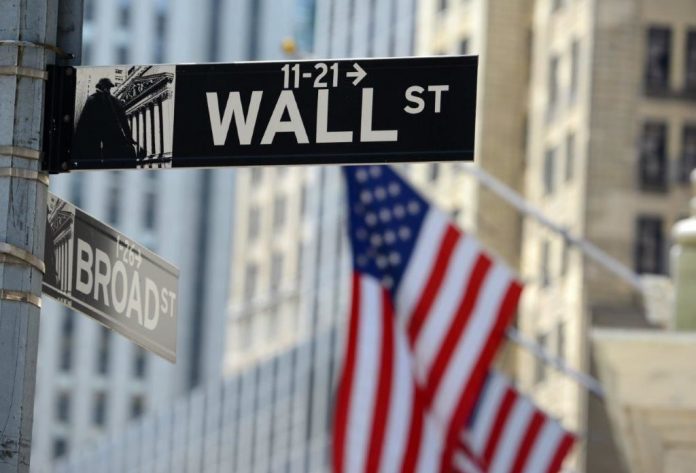By STAN CHOE AP Business Writer
Stocks climbed in morning trading on Wall Street Thursday as reports suggested that even though the economy is still getting walloped, at least conditions aren’t worsening as quickly as they had been.
The S&P 500 was up 1.2%, following up on similar gains in Europe. Oil prices also rose, but other areas of the market were more hesitant, including bonds and Asian stocks.
The day’s headliner economic report showed another 3.2 million U.S. workers applied for jobless benefits last week, bringing the total over the last seven weeks to 33.5 million. It’s a shocking number, but it’s also the fifth straight week that it has declined since hitting a peak in late March.
Several companies on late Wednesday also cited signs that the worst may be behind them, at least in some parts of their businesses, though more weakness is still definitely on the horizon.
That was enough to bolster hopes that have coursed through the stock market recently as investors look ahead to a future that’s not as bad as the horrific present. On Wall Street, investors often care more about how quickly economic pain is increasing than about whether there is more pain.
The Dow Jones Industrial Average was up 268 points, or 1.1%, to 23,932, as of 11 a.m. Eastern time. The Nasdaq was up 1.1% and has recovered nearly all its losses for 2020.
Everyone agrees the world is sliding into a severe recession after economies worldwide shut down in hopes of slowing the spread of the coronavirus. But countries and some U.S. states are laying out plans to relax restrictions, which has some investors focusing instead on a possible resumption of growth later this year.
The S&P 500 has more than halved its 34% loss from February into late March, though many analysts say the rally has been overdone given how much uncertainty still exists about how long the recession will last.
Lyft jumped 23% after it said late Wednesday that ride levels appear to have steadied after hitting a bottom in the second week of April. Over each of the three following weeks, the number of rides has grown from the prior week, though they’re still down more than 70% from a year earlier.
Waste Management rose 3.9% after it said it’s seen slowing declines in some areas of its business, even as it pulled its financial forecasts for 2020 given all the uncertainty created by the pandemic.
Stocks whose fortunes are most closely tied to the strength of the economy helped lead the market. Energy stocks in the S&P 500 rose 3.2% for the biggest gain among the 11 sectors that make up the index. Financial stocks were close behind at 3%. They have been the hardest-hit areas this year on worries that the recession is erasing demand for oil and could lead to a wave of loan defaults for banks.
Ameriprise Financial jumped 20.5% for the biggest gain in the S&P 500 after it reported stronger earnings and revenue for the latest quarter than analysts expected. It also raised its dividend payment when many other companies have cut theirs to preserve cash.
In Europe, gains were widespread for stocks. France’s CAC 40 rose 1.1%, and Germany’s DAX returned 1%. The FTSE 100 in London added 1.3%.
Encouraging data showed a 3.5% rise in exports for China in April, driven by electronics shipments and textiles, which included a surge in mask exports. Forecasters warned the strength is unlikely to last, though, as the coronavirus pandemic depresses global consumer demand.
Comments by President Donald Trump raising the possibility of further trade friction with Beijing have worried investors hoping for better times as other economies begin to reopen from pandemic shutdowns.
Most Asian markets slipped Thursday, though Japan’s Nikkei 225 gained 0.3% after reopening following its Golden Week holidays. South Korea’s Kospi was close to flat, while Hong Kong’s Hang Seng fell 0.6%. Stocks in Shanghai slipped 0.2%.
Benchmark U.S. crude rose 7% to $25.67 per barrel. Brent crude oil, the international standard, gained 3.2% to $30.66 per barrel.
The yield on the 10-year Treasury fell to 0.67% from 0.71% late Wednesday. Yields tend to fall as investors are downgrading their expectations for economic growth and inflation.
The 10-year yield had climbed strongly a day before after the U.S. government gave an update on how it’s borrowing to help pay for the trillions of dollars it’s pumping into the economy to combat the pandemic.
___
AP Business Writer Yuri Kageyama contributed.






